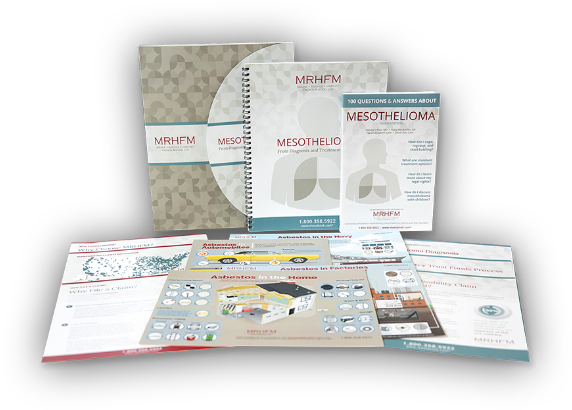 The legislation titled the “Furthering Asbestos Claim Transparency Act” or FACT Act was reintroduced on March 6, 2013 as a federal bill H.R. 982. While this bill was intended to prevent against fraud in asbestos claims, it requires much more information and transparency be provided by the asbestos victims making the claim process much longer, which is very inhibiting to a victim who does not have time on their side. This is unnecessary legislation that will only slow down the judicial process so that adequate compensation may come too late in future asbestos cases.
The legislation titled the “Furthering Asbestos Claim Transparency Act” or FACT Act was reintroduced on March 6, 2013 as a federal bill H.R. 982. While this bill was intended to prevent against fraud in asbestos claims, it requires much more information and transparency be provided by the asbestos victims making the claim process much longer, which is very inhibiting to a victim who does not have time on their side. This is unnecessary legislation that will only slow down the judicial process so that adequate compensation may come too late in future asbestos cases.
Essentially asbestos defendants or companies can bury the victim in information requests because FACT requires more proof of exposure on the part of the plaintive. More personnel will be required to process these requests, taking more from the money set aside for victims.
This bill puts the entire burden on the victim to be as transparent as possible, while the defendants do not have to supply any further information than the current law states. It does not address any concern about getting compensation to those that need it in a timely manner, which is already an issue with asbestos cases today.
In an article in the Huffington Post from earlier this year titled Shedding a Tear for the Insurance Industry?the author comments on the FACT Act:
… ALEC (The American Legislative Exchange Council) is drafting and pushing legislation to make it harder for victims to sue. Because as they see it, a "flood" of victims seeking compensation must be evidence of fraud- - rather than a lot of people suffering and dying. It goes without saying that legislation to protect companies from asbestos victims makes good economic sense for corporations. In spite of the fact that the culpable companies are likely to outlast plaintiffs …
The American Association for Justice also commented on the FACT Act with the following:
Myth: There are too many asbestos lawsuits and claims.
Fact: There are many asbestos lawsuits and claims because Big Asbestos knowingly exposed millions of Americans to this deadly product and covered up the dangers for profit. Asbestos has killed hundreds of thousands of Americans and 10,000 more are killed each year. Lives could have been saved and lawsuits prevented if Big Asbestos was transparent about the dangers decades ago.
Myth: Fraudulent claims run rampant in the asbestos trust system.
Fact: First, there is no record of fraud and abuse in the trust system. In fact, the Government Accountability Office (GAO) looked into this question and found none…. Second, data anomalies are not fraud. It is a misinterpretation of the data to conclude that data entry cases constitute fraud.
Myth: Federal legislation is necessary to prevent fraud and abuse in the trust system.
Fact: Federal legislation is unnecessary and offensive …
In conclusion, the FACT Act is an unnecessary piece of legislation that will have negative effects for those that are diagnosed with mesothelioma. These people and their families are entitled to compensation from the companies and organizations that failed to report the known dangers of asbestos exposure. And because a mesothelioma diagnosis is time sensitive, it is the government’s job to ensure that compensation is provided in a timely manner.
We urge the public to stand against the FACT Act and send a letter to your congress man or woman to oppose the FACT Act. Or you can sign a petition from Cancer Victims Rights here http://cancervictimsrights.org/take-action/sign-the-petition/.
The bill went to committee review March 6, 2013 and is still with the committee at this point. You can visit http://www.govtrack.us/congress/bills/113/hr982 to track what the progress of this bill. The prognosis from this source lists a 15% chance of this bill getting past committee and 2% chance of being enacted.






